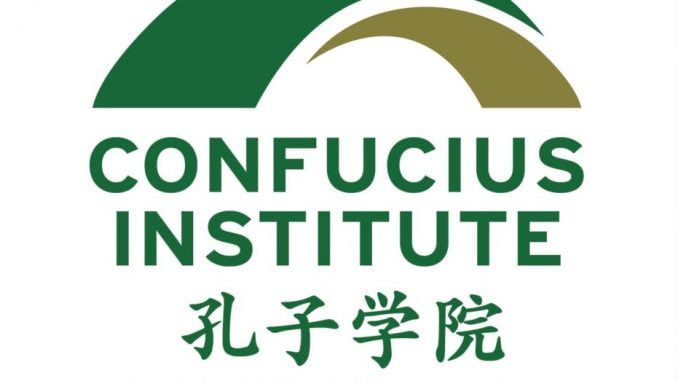
RALEIGH — Uncovering the depths to which the Chinese government has spread its roots into American colleges, universities and research centers has been an ongoing process for the last several years. Over the course of the past year, numerous scholars and researchers have been charged.
One of the more high-profile cases was of Dr. Charles Lieber, chair of the Department of Chemistry and Chemical Biology at Harvard University, who was charged and recently indicted on June 9 for making false statements to federal authorities regarding his participation in China’s Thousand Talents Program.
In early June, an ongoing investigation by the National Institute of Health yielded 54 firings and resignations. The investigation, which began in 2018, said that in 93% of those cases, the undisclosed funding source was Chinese in origin, according to Michael Lauer, NIH’s head of extramural research.
These types of investigations into Chinese influence have been going on for some time; however, the recent COVID-19 outbreak has given them a new sense of urgency. The House Oversight and Reform Committee is already investigating coronavirus propaganda efforts by China but stepped up efforts in early May. A letter to U.S. Education Secretary Betsy DeVos was issued by ranking Republican members on the committee, which requested information about the Chinese Communist Party’s investment in American higher education institutions to further its strategic and propaganda goals.
One way the Chinese government has been able to infiltrate and influence higher education in the United States is through Confucius Institutes, which began in 2004. These institutes opened doors at colleges and universities around the world by offering Chinese language courses and related culture offerings which whitewash the human rights abuses and history of the Chinese government.
An institute peddling Chinese language and culture lessons sounds innocuous; however, C.I.’s are operated by the Hanban, an entity funded and run by the Chinese government’s Ministry of Education. The Hanban also pays and screens who teaches the institute’s courses.
A 2017 report produced by the National Association of Scholars characterized C.I.’s as weapons of soft power which adhere to Chinese law, avoid mention of Chinese political history and human rights abuses, enact China’s censorious speech preferences, and “portray Taiwan and Tibet as undisputed territories of China.”
As of May, there are around 81 C.I.’s operating in the United States and one still operating in North Carolina — The University of North Carolina at Charlotte.
UNC Charlotte began operating its C.I. in 2017. This particular institute had been operating at Pfeiffer University, but closed in 2016 and moved to UNC Charlotte.
Buffie Stephens, director of issues management and external media relations at UNC Charlotte tells North State Journal that the C.I. is “governed by a board of directors that is chaired by the Dean of the College of Liberal Arts & Sciences.” He also said that the institute has a campus advisory council made up of UNC Charlotte faculty and staff.
“UNC Charlotte controls all curriculum and other academic matters at the university, and the C.I. does not offer any for-credit classes,” Stephens told North State Journal in an email.
“Teaching assistants in the C.I. are not instructors of record at the university,” Stephens wrote. “They work under the direction of UNC Charlotte faculty in our classrooms — providing services such as being conversation partners — and work under the oversight of teachers in K-12 schools, governed by those schools. They also help with cultural events.”
When asked about Hanban funding received by UNC Charlotte, Stephens said that the Hanban funded creation of the institute with “start-up expenses of $150,000” in 2017. The following year Hanban provided another $70,000 in operating support and an “additional $30,000 to support K-12 schools directly.”
According to Stephens, the C.I. received another $107,150 in operating support and an additional $40,000 to support K-12 schools directly in 2019.
“UNC Charlotte has not received more than $150,000 of support from Hanban in any given year. Consistent with Section 117 of the Higher Education Act, UNC Charlotte reports to the federal government all gifts from or contracts with a foreign source valued at $250,000 or more in a year,” Stephens said.
To get an idea of how large or small the C.I. presence is at UNCC, North State Journal asked how many Chinese nationals are working both at UNC Charlotte and within the C.I. program itself.
“While we are not permitted to share the national origin of particular employees, we can share that UNC Charlotte has 62 faculty and visiting scholars from China,” Stephens replied.
While other universities in North Carolina may not operate a C.I., it may be a reference for Asian studies programs. One such case is Duke University’s Asian and Middle East Studies program, which still lists the C.I. and Hanban as approved resources on its website.
Another case is North Carolina State University, which had been operating a C.I. until June of 2019. NCSU issued a statement in 2018 announcing the move away from the institute, which said in part that the closure was “part of NC State’s efforts to create a more comprehensive Asia strategy.”
Hanban had been providing NCSU’s institute with up to $200,000 a year. As cited by NAS, C.I. host schools have seen pressure from Hanban to follow political preferences of China. One example of such deference was arguably seen in 2009 when NCSU revoked the Dalai Lama’s invitation to speak on campus.
The C.I.’s on university campuses also spawned “Confucius Classrooms” at satellite schools, community colleges and even K-12 schools. Look for part two of this series next week and online at NSJonline.com.



